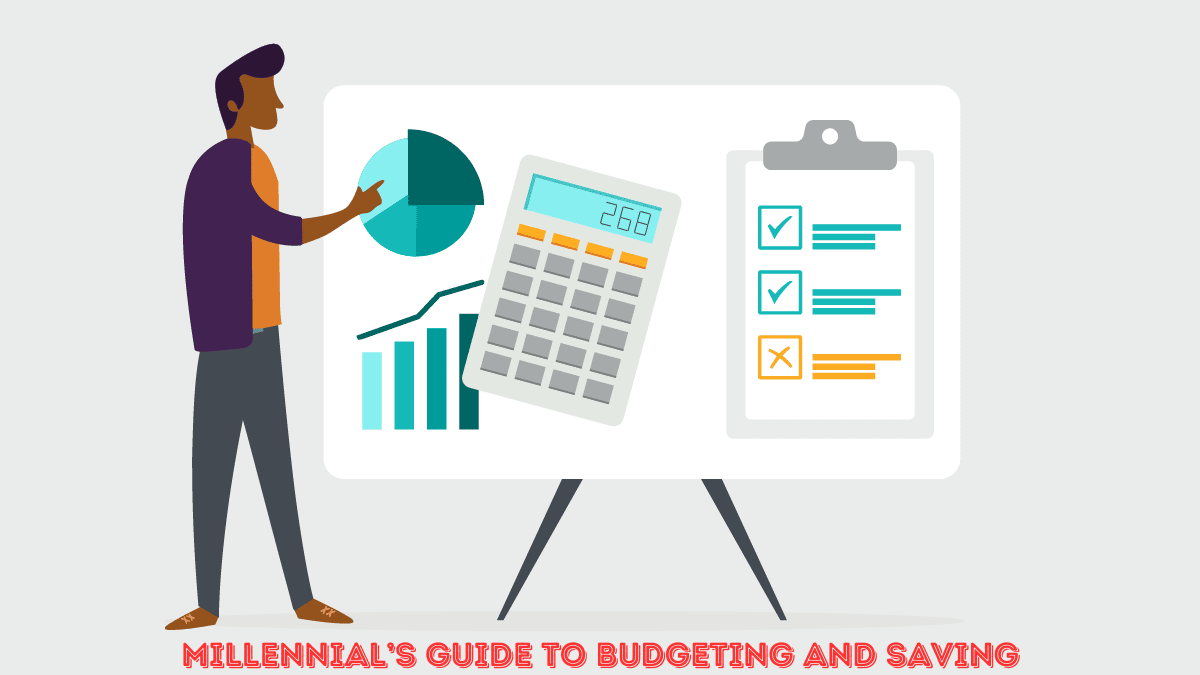The Millennial’s Guide to Budgeting and Saving
Managing money can be tricky especially for millennials. There are many things to consider: paying off student loans handling everyday costs and saving for big dreams like owning a home. It’s different from how things were for previous generations and sometimes it can feel overwhelming. But understanding these money challenges is an excellent place to start.
Budgeting and saving are vital. They help you keep track of your money so you don’t spend too much and plan for big goals in the future. You need to be smart about how you spend your money. When you learn to budget and save well you can take better control of your money which can make you feel safer and more confident about your finances.
At Trusted10.io we’re here to help you determine the best ways to save money. Our experts know all about millennial saving strategies and can show you how to manage your money better. If you want to know simple practical strategies to save money and stick to a budget this blog is for you. Get going and put your money to work for you!
Understanding Millennial Finances
Millennials defined as those who were born between 1981 and 1996 are the largest generation of adults in the world. They are busy building their careers starting families and planning their financial futures. But even with all their hard work millennials face some tough money challenges that can make reaching their big financial goals tricky.
A big issue for many millennials is student loan debt. A study from the Federal Reserve says that most millennials have student loan debt of around $33000. This debt can make it hard to save money for other essential things like buying a house or starting a business.
Another problem is the price of a house. According to the National Association of Realtors the price of a typical U.S. home has increased by more than 50% since 2000. For millennials especially those living in cities buying a home is becoming increasingly difficult because the prices are so high.
But there’s good news: budgeting and saving money can help. When millennials make a budget and stick to it they make sure they’re not spending more money than they have. They can save money this way for the future. Saving money is vital for having enough for emergencies retiring comfortably and being financially stable.
Teenagers and young adults can improve their credit scores and pay off their bills by sticking to a budget. Their credit scores go up when they pay off their debts and bills on time. In the future taking out loans will be easier and cost less if you have good credit.
Understanding and managing these financial challenges is very important for millennials who want to be successful with their money. By sticking to a fair budget and saving smartly they can get through these problems and build a strong financial future.

Budgeting Strategies for Millennials
Creating and sticking to a budget is crucial for anyone looking to secure their financial future especially millennials. Here’s how you can set up and manage a budget that works for you:
- Track Your Expenses: To make a budget you must first know where your money goes. Monitor your spending closely for approximately a month. Paper a simple planning tool or both can help you make a plan. Tracking helps you see your spending on food rent and fun activities.
- Set Financial Goals: Think about what you want your money to do for you. You may wish to pay off student loans save for a house or put away money for emergencies. You can use your money wisely if you have clear goals.
- Allocate Your Income: The 50/30/20 rule is a good one to follow. This means you spend 50% of your income on necessities like rent and groceries 30% on things you enjoy like eating out or hobbies and 20% on savings or paying off debts. This rule helps you balance your needs wants and savings.
- Create a Spending Plan: Once you know how much money you have for each category make a plan. You can use your money wisely if you have clear goals.
- Adjust as Needed: You can change your budget at any time. Check it regularly and adjust it if your income or expenses change. Maybe you get a raise at work or your rent goes up. Updating your budget helps keep it realistic and valuable.
The 50/30/20 rule isn’t just about keeping your spending in check. It’s a strategy that helps you ensure your money is going toward the things most important to you. Now that you know these steps you can make a budget that works for you and helps you reach your financial goals.
Saving Strategies for Millennials
A good way to set yourself up for a bright future is to save money. Here are some simple ways millennials can save more effectively:
- Build an Emergency Fund: It's important to save extra cash in case of an emergency. This could be for unexpected things like getting sick and having a prominent doctor’s bill your car breaking down or losing your job. Put aside three to six months' worth of expenses. This gives you a safety net so you don’t have to worry as much if something unexpected happens.
- Save for Big Goals: Consider your long-term savings goals. This may be anything from purchasing a home to launching a company or taking a once-in-a-lifetime vacation. Staying focused and conserving becomes much simpler when you have a clear goal in mind. Figure out how much money you need and how long it will take you to save it then put a little money aside each month to reach that goal.
- Automate Your Savings: Making it automatic is a great way to save. You have the option to configure your bank account so that a portion of your checking balance is transferred to your savings account on a monthly basis. This way you save money without even having to think about it. It’s like making your savings grow on autopilot.
- Save for Retirement: Thinking about retirement might seem far off but starting early is a smart move. Contributions may be made to retirement accounts like 401(k)s and IRAs. In addition to allowing your money to grow over time these accounts may also provide you with tax advantages. Your retirement savings will increase at a faster rate if you begin saving at a younger age.
- You can improve your financial situation by using these strategies: building an emergency fund saving for big things making saving automatic and planning for retirement. Each step helps you prepare for both the unexpected and your big plans. In this approach you may meet your immediate requirements while still laying the groundwork for a more secure future.
Student Loan Refinancing
Refinancing student loans is a smart way for millennials to manage their debt better. You may reduce your monthly payments by negotiating a lower interest rate with a lender when you refinance. It’s like switching out a high-cost loan for a cheaper one. Refinancing also lets you combine several student loans into one. This can make it much easier to handle your monthly payments because you only have to worry about one bill instead of several.
Refinancing also gives you the option to pick new repayment terms that work better for your budget. For example you can pay off your loan quicker with larger payments or stretch it out over a longer time with smaller payments depending on what’s easier for you. This can help lower your monthly payments giving you more room for other expenses.
You should shop around for the best rates and conditions offered by several lenders before beginning the refinancing process. You’ll need to check if you qualify which usually involves your credit score earnings and job. Gather all your loan information and then apply with your chosen lender. Make sure to carefully consider all of the offers you receive in order to choose the best one for your situation. Refinancing your student loans can help make your debt easier to manage and give you a better hold on your finances.

Digital Budgeting and Saving Tools
There are some great budget management tools for millennials looking to handle their money better. Here’s a simple look at some popular apps that can help you manage your finances:
1: Mint:
- What it does: Mint helps you keep track of all your spending set up a budget and check your credit score.
- Good stuff: It lets you organize your spending into categories set goals for saving money get reminders about bills and even offer tips on how to save more.
- Not so good: Sometimes it might put your spending in the wrong category and it’s not the best app for monitoring your investments.
2: You Need a Budget (YNAB):
- What it does: YNAB ensures every dollar you earn has a job whether you're paying bills saving or paying off debt.
- Good stuff: It can help you stop living paycheck to paycheck learn more about budgeting and connect you with others trying to save.
- Not so good: After a free trial you must pay to keep using it which might not be great if you’re looking for a free tool.
3: Acorns:
- What it does: Acorns rounds up your spending to the nearest dollar and deposits a small amount of money into an investment account.
- Good stuff: It’s an easy way to start investing even if you don’t have much money and it does all the work for you.
- Not so good: The fees might be high especially if you have little money in your account.
4: Personal Capital:
- What it does: This app offers tools for budgeting checking your total worth and looking at your investments.
- Good stuff: You can view all of your financial accounts in one location receive advice specific to your needs and make retirement plans.
- Not so good: If you want personalized advice from their experts you’ll have to pay extra.
5: EveryDollar:
- What it does: Similar to YNAB it employs a budgeting approach in which each dollar is assigned a specific task.
- Good stuff: It’s straightforward to use lets you track your spending as it happens and shows you how well you’re doing with your money goals.
- Not so good: The basic version is free but doesn’t do much; you need to pay for the premium version for more features.
These digital budgeting apps—Mint YNAB Acorns Personal Capital and EveryDollar—are great for monitoring your money setting goals and even starting to invest. You may choose the one that works best for you since each has its own set of advantages and disadvantages.
Financial Planning for Millennials
Getting your finances in order is a big step towards a secure future for millennials. If you want to realize your long-term goals here are some easy ways to start saving:
- Define Long-Term Financial Goals: Think about what you want in the future. Is buying a home starting a company or retiring early more your goals? The best way to save and spend money is to have a clear idea of your long-term objectives.
- Create a Budget: A budget is like a plan for your money. It breaks down your monthly expenses allows you to put money aside for savings or debt repayment and more. By checking how you spend your money and adjusting your budget when needed you can ensure you're on the right track to meet your goals.
- Build an Emergency Fund: It's essential to have extra money for unexpected things like if you get sick and can't work or your car breaks down. Put aside three to six months' worth of expenses. This emergency fund will help you stay out of debt when surprises happen.
- Save for Retirement: Even though retirement might seem far away starting to save now can make a big difference later. The money you save now will grow thanks to compound interest. You may also get tax breaks when you put money into retirement accounts like 401(k)s and IRAs.
- Pay Off Debt: Pay off high-interest bills such as credit card balances as quickly as possible. You may avoid paying interest and have extra spending money for other things if you do this.
- Seek Guidance from a Financial Planner: If all of this sounds overwhelming talking to a financial planner might be a good idea. They can give you advice that fits your situation and help you make a plan that will work for you.
You can get a good handle on your finances by following these steps. Each step helps you prepare better for both today and your future. By setting clear goals creating a budget and planning you can build a solid financial base for whatever comes next in your life.
Conclusion
We’ve discussed why millennials must be good at budgeting and saving money. Knowing how to manage your money helps you handle bills and save for big things like a house or retirement. If you want a better tomorrow you have to make good decisions today.
We hope you feel encouraged to try out some of the strategies and tools we've mentioned like using apps to keep track of your spending or thinking about refinancing your student loans. These steps can help you manage your money more easily and save more.
Trusted10.io is here to provide you with financial planning for millennials for managing your money. Our blog has many articles and pieces of advice that can answer your questions and show you new ways to keep your finances on track. So keep coming back to find new ideas and learn to take good care of your money. Every little bit you understand and apply can make a big difference!
